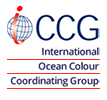Co-Chairs:
Bryan Franz
NASA Goddard Space Flight Center
Email: bryan.a.franz@nasa.gov
David Antoine
Curtin University, Australia/LOV, France
Email: antoine@obs-vlfr.fr
Background:
The IOCCG recognises that it is important to have an independent assessment of Essential Climate Variables (ECVs) outside of space agencies, which is best done through a standing working group. The framework, scope and draft terms of reference for an IOCCG task force to evaluate the ocean colour ECVs produced by various agencies was prepared at the 20th IOCCG Executive meeting (Villefranche, 8-9 September 2011) and finalised at the 21st IOCCG Executive meeting (Denpasar, Indonesia, 1 March 2012). All agencies on the IOCCG Executive Committee are expected to support this task force with dedicated resources.
Rationale:
Fully characterized and broadly accepted GCOS-compliant global ocean-colour radiometry ECV products are very valuable inputs for climate studies. However, existing products generated by different instruments or space agencies lack consistency and exhibit small but consistent biases that need to be resolved. It is therefore critical that the various ECV products produced by different agencies are validated and inter-compared to establish confidence limits for the establishment of a long and coherent time-series of global ocean-colour ECV products. Furthermore these datasets need to be assessed not only with regards to each other and independent ground-truth, but also with respect to the target requirements as defined in the GCOS Satellite Supplement.
In future, the mandate of the CEOS virtual constellations may be augmented to support the long-term generation of climate data records (CDRs). The Ocean-Colour Radiometry Virtual Constellation (OCR-VC) will thus be tasked to evaluate ECVs in an independent, systematic and recurrent way. For this reason, the IOCCG resolved to establish an IOCCG task force to carry out this task, focusing on the global products which should be defined, along with the protocols. This work will also support the CEOS working group on Climate whose mandate is to facilitate the implementation and exploitation of ECV time-series related to climate monitoring through coordination of the existing activities undertaken by CEOS member agencies.
Mission Statement:
The goal of this international scientific expert group is to undertake a critical comparison of available ocean-colour ECV data products and provide guidance on the generation of better, long-term OCR climate data records.
Terms of Reference:
The IOCCG task force shall perform the following functions:
- Develop a roadmap, including milestones for completion of the first assessment of ECV products (about a 2-year time frame, up to the IOCCG Committee meeting in 2014).
- Recommend comparison/evaluation metrics (in particular with respect to long-term trends) and define comparison protocols.
- Record and evaluate the differences among existing OCR ECV products (basin to global scales), and recommend how differences can be resolved.
- Establish criteria to be satisfied by OCR ECV products and recommend actions needed to ensure the quality and consistency required by GCOS.
- Respond to CEOS requests for review of OCR ECVs.
- Establish contact with SST-VC which may have some comparable ECV challenges and solutions.
- Evaluate agency efforts to develop/help develop and archive ECVs including agency actions to archive raw data and associated data that are needed for full reprocessing.
Functioning of the IOCCG Task Force:
- The task force is encouraged to interact and exchange ideas with relevant IOCCG working groups (e.g. Uncertainty WG) as well as the CEOS OCR-VC and INSITU-OCR.
- Task force members will meet as often as required (preferably virtually or opportunistically) to ensure work plan timelines are met. Agency members are encouraged to cover their own expenses to attend meetings so as not to impinge on the IOCCG budget.
- Annual assessments of the task force will be carried out at each annual IOCCG Committee meeting, based on the written progress reports. These will be used to evaluate whether the group merits continuation or termination.
- The need for the task force and the relevance of its terms of reference will be reviewed and modified as appropriate by the IOCCG two years from the WG’s establishment.
- The Chair(s) of the task force will be expected to attend annual IOCCG Committee meetings (costs to be covered by IOCCG) to provide status updates on the progress of working group activities.
- The IOCCG will fund one meeting of the task force every year.
- The Chair(s) will be given the opportunity to propose new terms of reference.
- The first meeting of this task force will take place in 2012.
- This task force is envisaged as a long term structure. The above terms of reference will be supplemented by an annual programme of work.
Members:
The Chair(s) of the task force will be proposed by the IOCCG Executive. If not already an IOCCG member, the task force Chair(s) will be invited to become a member of the IOCCG Committee, and will be expected to serve a 3-year term on the working group. Working group members (a total of 6 to 8) will be proposed by the Chair(s) and will be approved by the IOCCG Executive before appointment. Working group members should be drawn from a variety of institutions and organizations, and should comprise both agency and non-agency representation and include a broad range of relevant disciplines and competencies. Task force members will also be expected to serve a 3-year term. Additional outside consultants or experts may be consulted and invited to attend meetings when a particular subject or objective is to be addressed. The following are suggested criteria as guidance for selection:
- Expertise and experience in ocean-colour remote sensing, climate modelling and calibration and validation;
- Knowledge of analysis of essential climate variable products;
- Balance of scientific and operational knowledge and experience;
- Good geographical representation;
- Commitment to participate actively in the Task Force
- Balance of relevant disciplines within the Task Force.
Below is a list of current Task Force members for Ocean Colour ECV Assessment (in alphabetical order):
- David Antoine (Co-Chair), Curtin University, Australia/LOV, France
- Bryan Franz (Co-Chair), NASA, USA
- Stephanie Henson, National Oceanography Centre, UK
- Nicolas Hoepffner, Joint Research Centre, EU
- Ewa Kwiatkowska, Eumetsat, EU
- Hubert Loisel, CNRS, France
- Antoine Mangin, ACRI-ST, France
- Stéphane Maritorena, University of California, Santa Barbara, USA
- Frédéric Mélin, EU Joint Research Centre (JRC), Italy
- Hiroshi Murakami, JAXA, Japan
- Menghua Wang, NOAA/NESDIS/STAR, USA
- James Yoder, Woods Hole Oceanographic Institution, USA


 The sixth International Ocean Colour Science (IOCS) meeting will take place in Darmstadt, Germany from 1 – 4 December 2025, hosted by EUMETSAT and ESA with support from other agencies.
The sixth International Ocean Colour Science (IOCS) meeting will take place in Darmstadt, Germany from 1 – 4 December 2025, hosted by EUMETSAT and ESA with support from other agencies.